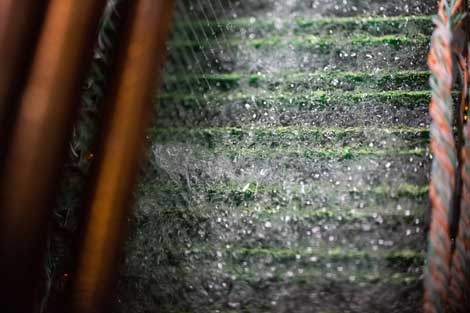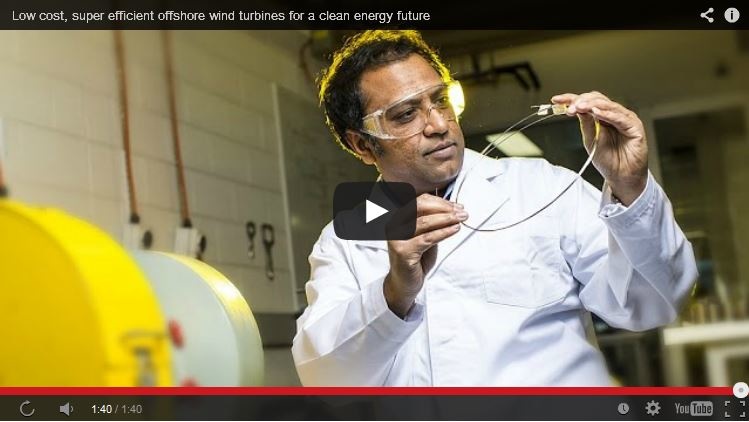What's New in the Windfair World - Bitcoin Mining with Wind Turbines
Background
The process of mining Bitcoin is economically interesting from the energy point of view. Besides the problem with cooling of hardware, there is also the issue of the amount of energy that the hardware needs in the process of mining. There are developments taking place on the cooling issue, with some innovative solutions like immersive cooling. Bitcoin mining set in place a computing arms race which fuels interest in both cooling and energy generation.
The process linked to Bitcoin mining is considered important for the feasibility of the Digital Currency. Let’s not forget that it is Bitcoin mining with its profit incentive that gives the currency tangible value. And underlying the mining of Bitcoins is a core network of computing power that requires energy, consumes energy and expels back most of this energy as heat. Heat slows down the efficiency of the computing power, so in order for the process of mining to achieve maximum efficiency, resulting in higher gains, cooling of hardware is important and decisive.

Densely-packed chips performing Bitcoin calculations are immersed in cooling fluid, which bubbles as it boils, removing the heat from the ultra-high density “mining” operation. (Photo: Allied Control)
It is unsurprising, therefore, that the major players in the field of Bitcoin mining choose regions of the World with lower annual average temperatures to locate their businesses. The Swedish miner KncMiner is one such example, being a Scandinavian country it is a cool place most of the year. The country is also proud of its stable energy sector; perfect conditions to generate power with renewable sources and Government and private sector supportive of the industry.
Another example of this trend is the attraction of the industry to locate to Iceland, an even cooler country. IBtimes has this interesting post on the issue:
"With the vast amounts of computing power now required to generate bitcoin, mining companies are moving their operations en masse to Iceland in an attempt to cut costs and make their endeavours profitable within this new technological arms race"
Wind turbines and Mining
With the scale of the industry on a probable path of increase and growth, the issue of energy generation becomes important. One of the current mainstream methods of generating power with renewable sources is wind farms. Wind turbines are the equipment widely used on wind farms, whether they are onshore or offshore. Wind turbines are advanced and sophisticated pieces of equipment, where innovation is intensively pursued. But the traditional wind turbines used and manufactured are expensive, require costly maintenance and transportation, mainly due to heavy weight issues. That may change if the new superconductor powered wind turbine becomes a reality. A team of Australian scientists recently developed technology that turns the piece of the machinery in a wind turbine, the gear box useless:
“In our design there is no gear box, which right away reduces the size and weight by 40 percent,” said lead researcher and materials scientist Shahriar Hossain. “We are developing a magnesium diboride superconducting coil to replace the gear box. This will capture the wind energy and convert it into electricity without any power loss, and will reduce manufacturing and maintenance costs by two-thirds.”
Thence the question that is circling around the Bitcoin community: is it economically feasible to link Bitcoin mining to wind energy generation process? Well, if the innovation with wind turbines would become a reality, and we’d contemplate the possibility of generating enough power to the mining process, the answer would have to be big yes! We can put all this in perspective if the profitability of mining companies rises with shrinking costs, and the superconducting material mentioned in the Australian scientific effort points in that direction:
But superconducting materials generate no electrical resistance, which means they’re able to store electricity with no loss of energy. The current is also able to circulate over and over indefinitely, even if power is turned off. The Australian team is making their superconducting coil out of magnesium and boron, both of which are cheap, durable and easy to make. The team estimates that their superconductor wind turbines will cost just $3-5 million each to build because, by next year, the magnesium diboride coil will cost just $1 per metre to manufacture.
Bitcoin Mining and Innovation
This joining of Bitcoin mining, with its economic incentive structure, with scientific and technological innovation that is of great potential for direct implementation, is to me one great win-win situation.
We aren’t certain of the future reality for a superconducting wind turbine. But we know about the reality of Bitcoin mining and its energetic cost structure. If the former becomes feasible, then it would just be a matter of time and further effort for the latter to see the green light also, creating the new sector of Bitcoin mining with wind turbines.
Images from Allied Control, wind.energy.gov and Wikimedia Commons. Video from University of Wollongong (UOW) Australia
If you like to receive our Newsletter or find out more about what w3.windfair.net has to offer, please, do not hesitate to contact Trevor Sievert at ts@windfair.net.
w3.windfair.net is the largest international B2B internet platform in wind energy – ultimately designed for connecting wind energy enthusiasts and companies across the globe.
- Source:
- Cryptocoins News
- Author:
- Edited by Trevor Sievert, Online Editorial Journalist / by N. E. Fernandes
- Email:
- ts@windfair.net
- Link:
- w3.windfair.net/...
